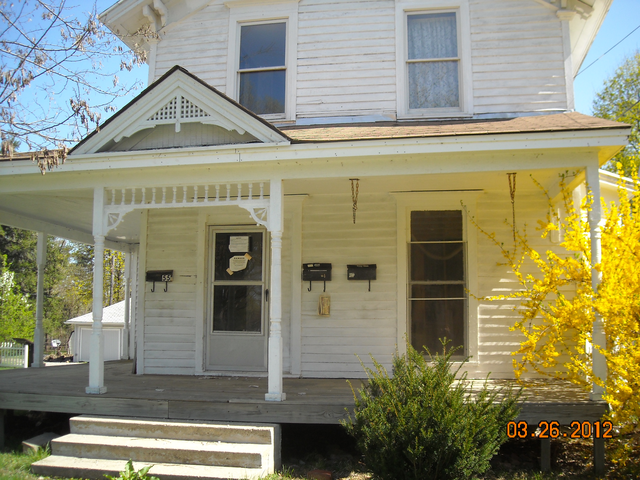At 4:30 AM on August 25th, I stood crying in the kitchen of my parents’ new house in Arlington. I was washing dishes and waiting for the taxi to take me to the airport. Hours away, in Michigan, my Grandma was dying, facing the final struggle in an unbelievably rapid battle with cancer.
Mom had called the night before to tell me Grandma was in “excruciating pain” and the doctor believed this was the end. Only nine months had passed since she was diagnosed with Multiple Myeloma, an extremely rare and sometimes extremely aggressive form of cancer. At that point, we thought she had five to fifteen years left; she was only 72.
“If I’d known,” I said bitterly to the sponge, “I’d never have taken this internship. I’d have skipped last semester. I’d have….”
“Well,” I thought wryly, “I guess that’s what Pongracic meant about ‘imperfect information.’” We think we’re making rational decisions, but so often those calculations are misguided. Somehow, the thought relieved some of the guilt. So I tried to remember what else I’d learned in economics, and what I found gave me comfort and hope.
As ridiculous as it sounds, when I was standing in that kitchen and it hurt too much to talk to God, it gave me hope to think of things I’d heard in my economics classes. I thought about how much the world has progressed and how it will keep progressing. Science and technology have made incredible leaps thanks to free markets, and quality of life has followed that upward trend. I was grateful for advances in medicine that allowed us to spare her so much pain; I shudder to imagine her going through this fifty– or even ten– years ago.
A study on Multiple Myeloma by Cancer Research UK found that, from 1970-2014, MM deaths actually increased by 56%. But MM mostly attacks the elderly. In the UK in 1970, the average life expectancy was 71 years, but the average age of a MM patient at diagnosis is 70 years. More people are dying because more people are actually living long enough to get it in the first place! It’s a cruel irony for the 0.7% of the US population that will be diagnosed with MM, but it’s a very good sign for humanity and quality of life as a whole. For every seven people that are diagnosed with Multiple Myeloma, 993 are not. Those 993 (assuming MM was their only threat), are enjoying time with their grandchildren as the result of economic growth and technological advances. How did we get here? Free market capitalism.
“But the culture!” you might cry, “Ever since the Enlightenment, it’s been nothing but downhill for the culture!” Perhaps. Although, it seems we find immorality in every era, so I’m not sure why this one should be different. But, let us assume that the culture is particularly diseased at this point, and that having our modern world with all its wealth comes at the expense of that moral society. I think I would still make that deal. In 1900, the infant mortality rate was about 16% (I don’t even want to know what it was like before the Enlightenment!). Today, the infant mortality rate is about 0.6%. I admit that figure doesn’t directly counter the notion of dying cultural mores, but if decreased infant mortality is the trade-off for a culture with no respect for Aristotle (although I don’t quite think we’re there yet), I’ll happily read Aristotle alone.
It’s easy to be swept up in despair over the suffering in the world, but we should remember that the world is really not such a terrible place. It’s getting better all the time. In addition to infant mortality, in 1900, the average life expectancy at birth was 47 years. Today, the average life expectancy is 78.74 years. If that’s not enough, look at income: in 1900, the average American’s annual income was around $500; today, the average is $51,000 (Here at Hillsdale, I hope I’m preaching to the choir about the incredible things that free markets, cooperation, and private property rights have helped us create).
This upward trend in history (brought about by free markets) gives me hope. The idea that we can create value and dramatically improve the world around us by acting in our own interests and performing our own specialized labors is extremely uplifting. In studying economics, I see reflections of God’s providence, how he brings the good from the bad — and we get to take part in that! The world is so complicated and interconnected — you could never predict all the consequences (good and bad) of your actions. Even the most terrible things can bring good. That’s what the free market is all about: channeling the greedy or wicked inclinations of man into something productive, something that creates benefit for the people around him.
She’s not in pain anymore. My family and I miss her terribly (I guess you could call that a negative externality of death!), but we’re grateful her suffering is over. Life will go on (perhaps even get better). The world is not so terrible as we might think. It rained the whole day of her funeral, but the sun came out again the next day.


